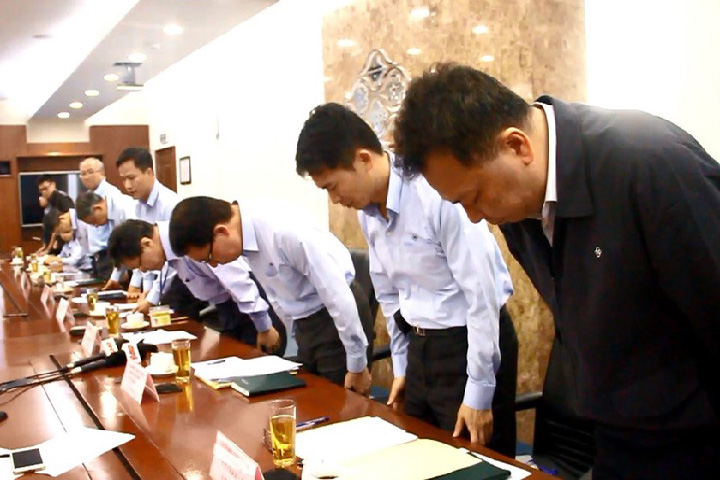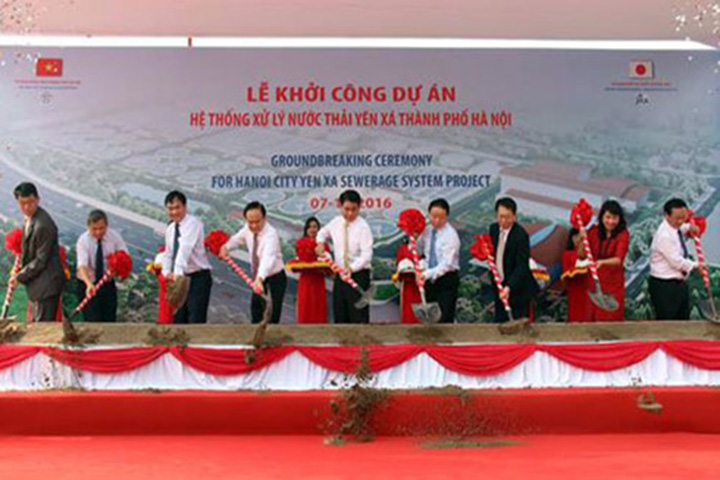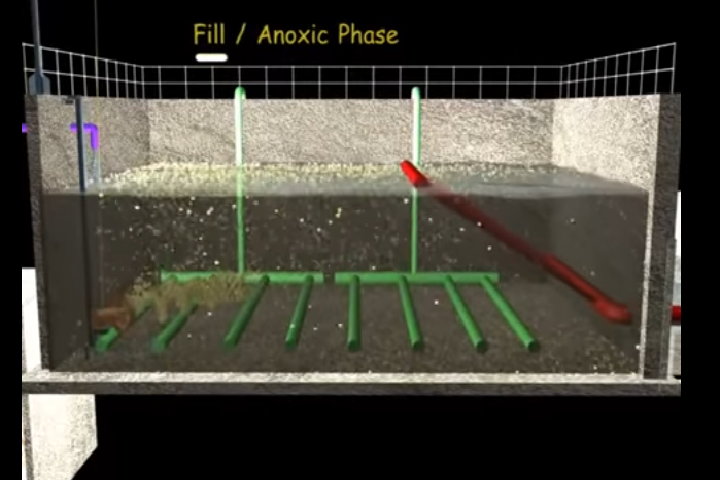Taiwanese firm apologizes for official's callous remarks on mass fish deaths

Formosa representatives apologize for a company official's shocking remarks related to the recent environmental disaster in Vietnam at the press conference in Ha Tinh on April 26, 2016. Photo: Nguyen Dung
A Taiwanese steel company Tuesday afternoon apologized for what has been panned as a callous statement by one of its top executives about an ongoing environmental disaster in central Vietnam that has resulted in mass fish deaths.
Hung Nghiep Formosa Ha Tinh Steel Company (FHS), went into damage control mode, organizing a press conference to apologize, as public outrage mounted in response to a statement by Chou Chunfan (Vietnamese name: Chu Xuan Pham), chief of its representative office in Hanoi.
Chou had told reporters who asked if Formosa had installed an undersea pipe to discharge wastewater directly into the sea in Ha Tinh Province: “I admit that the discharge of wastewater will affect the environment to some extent, and it is obvious that the sea will have less fish.
“But before we built the plant, we got permission from the Vietnamese government.
“To be honest, we must lose some to win some. You want the fish or the steel plant? You have to choose.”
Zhang Funing (Vietnamese name: Truong Phuc Ninh), Formosa’s deputy general director, and Chou himself, apologized for the statements, and Zhang promised that Chou would be punished.
When asked what caused the mass fish deaths, he said Formosa had provided all data related to its wastewater treatment system to authorities.
“[To know] if the mass fish deaths are linked to the wastewater, we must wait for Vietnamese authorities’ conclusions.”
Formosa used advanced technologies, mostly from Europe and Japan, in its steel plant and had spent US$45 million on its wastewater treatment facility, he said.
But he refused to elaborate when reporters asked him about the technology used in the latter.
Khau Nhan Kiet, director of Formosa’s environmental safety department, said Formosa had for several years cooperated with Ha Tinh’s environment authorities to conduct tests on its wastewater on a monthly basis.
He said the Ministry of Natural Resources and Environment had recently confirmed that Formosa’s wastewater treatment system met required standards.
The case
In early April fish raised in some farms near the Vung Ang Economic Zone died en masse. Shrimp too died on farms using seawater along 200km of coast from Ha Tinh’s Ky Anh town to Thua Thien-Hue Province’s Lang Co Beach.
In some coastal areas, residents found tons of dead fish washed ashore. At least 65 tons of dead fish had been collected in Ha Tinh, Quang Binh and Quang Tri provinces by April 25.
The environmental disaster affected the livelihoods of fishermen and tourism along the central coast.
The agriculture ministry said preliminary tests showed the fish had been killed by “very toxic” substances.
It plans hold a press conference this afternoon to announce the results of its investigation.
Suspicion has centered on Formosa, a major firm in the Vung Ang Economic Zone. The company has admitted it has a large sewage pipe going straight into the sea, but insisted that the discharged wastewater is properly treated.
However, several days before the first mass fish deaths were reported, Formosa had cleaned the pipe using around 300 tons of imported chemicals described as “extremely toxic” by experts.
The steel plant went on stream in 2013 and is scheduled to reach full capacity soon.
Local experts said wastewater from a steel plant comprises of many heavy metals and cyanide, which are highly poisonous and can be fatal if not treated properly.
Nguyen Van Sua, deputy chairman of the Vietnam Steel Association, told Thanh Nien that waste treatment technology for the steel industry is very costly and could make up 25-30 percent of a plant’s total cost.
“There are many plants that invested in the technology but abandoned it due to the high cost of electricity needed to operate it or only operate the system during inspections.”
In 2008 Taiwanese MSG maker Vedan had been caught dumping huge volumes of untreated wastewater into the Thi Vai River in Dong Nai Province, causing mass fish deaths.
Vedan had a waste treatment system but did not operate it, instead dumping wastewater directly into the river through a hidden pipeline.
According to a Thanh Nien source, Formosa had initially designed a sewage pipe to discharge waste into a river, but then sought permission to link the pipe to the sea, making it harder to monitor the quality of its wastewater.
The source said the company recently imported a large amount of microorganisms for wastewater treatment, which is strange since most factories and industrial parks in Vietnam do not import microorganisms but produce them themselves.
(Origin: http://www.thanhniennews.com)
.png)





.jpg)
.jpg)


